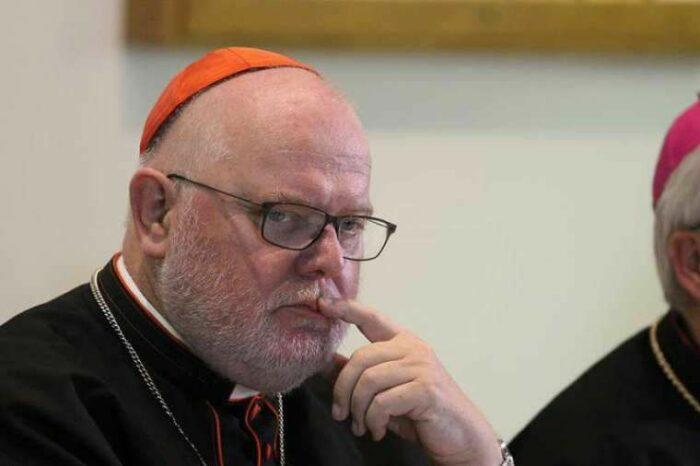Pope Francis wrote a letter to the resigning cardinal over the German Church’s situation in the face of child abuse: “Thank you for your Christian courage that is not afraid to be humbled in the face of the tremendous reality of sin. Taking on the crisis, personally and communally, is the only fruitful path.”
“If you are tempted to think that, by confirming your mission and not accepting your resignation, this Bishop of Rome (your brother who loves you) does not understand you, think about what Peter felt before the Lord when, in his own way, he presented his resignation” placing himself as a sinner and heard as a response “Feed my sheep.” Pope Francis ended the letter rejecting the resignation presented by the archbishop of Munich and Freising, Cardinal Reinhard Marx.
On May 21, Marx had asked the Pope for permission to leave the leadership of the German Archdiocese because of the abuse scandal in Germany and the response he deemed insufficient from the episcopate.
In the letter published in Spanish and German by the Holy See Press Office, the Pope thanked Marx for his “Christian courage which does not fear the cross, which does not fear to be humbled before the tremendous reality of sin.”
Ostrich Politics leads nowhere
Francis recalls that “the whole Church is in crisis because of the case of abuse and cannot take a step forward without assuming this crisis” because “ostrich politics leads nowhere, and the crisis must be assumed by our paschal faith.” Therefore, “to face the crisis, personally and communally, is the only fruitful way, because one does not come out of a crisis alone, but in community.”

The Pope agrees with the description of the crisis proposed by Marx’s letter: ” Describing the sad history of sexual abuse and the way the Church has dealt with it until recently as a catastrophe.” Thus, “we must take up the story, both personally and as a community. We cannot remain indifferent to this crime. To accept it means to put ourselves in crisis.”
Francis adds, “Therefore, in my view, every bishop of the Church must assume this and ask himself: what should I do in the face of this catastrophe?”
The Pope recalls the “mea culpa” already repeated many times “before so many historical errors of the past.” But, he explains, “we are asked for a reform, which – in this case – does not consist in words, but in attitudes that have the courage to face the crisis, to assume reality whatever the consequences may be. And every reform begins with oneself. The reformation in the Church was made by men and women who were not afraid to enter into crisis and allow themselves to be reformed by the Lord.”
Feed my sheep
Pope Francis said that the crisis must be faced “otherwise we will be nothing more than ‘reform ideologues’ who do not risk their own flesh,” as Jesus did, who did it “with his life, with his history, with his flesh on the cross.” But, he continues, “burying the past gets us nowhere. Silence, omissions, giving too much weight to the prestige of institutions only leads to personal and historical failure.”
The Pope remarked that “the Spirit leads us into the desert of desolation, to the cross and the resurrection. We have erred, we have sinned. Neither research nor the power of institutions will save us. We will be saved by opening the door to the One who can do it and confessing our nakedness: ‘I have sinned,’ ‘we have sinned”. “
“We will feel that healing shame that opens the door to the compassion and tenderness of the Lord who is always close to us.” Francis also writes that he appreciates Marx’s willingness to continue “to be priest and bishop of this Church,” committing himself to spiritual renewal. The Pope urged, “Continue as you propose, but as Archbishop of Munich and Freising.” Recalling that Peter had said to Jesus, “Depart from me, for I am a sinner,” and the answer that the Nazarene gave to the Prince of the Apostles: “Feed my sheep.”
































